Gardening can be one of the most rewarding hobbies, but not everyone has the time to maintain a lush garden filled with delicate plants. For busy people, especially those juggling work, family, and other responsibilities, a low-maintenance herb garden offers the perfect solution. Herbs not only bring greenery and life to your space but also provide fresh flavor for your meals, natural remedies, and even pleasant aromas around the home.
If you think growing herbs requires constant attention, you’ll be glad to know that many herbs thrive with minimal care. These hardy plants can survive on less water, need little pruning, and resist pests naturally. In this guide, we’ll explore five low-care herb garden plants perfect for busy people, along with practical tips on growing them successfully.
1. Rosemary – The Evergreen Aromatic Herb
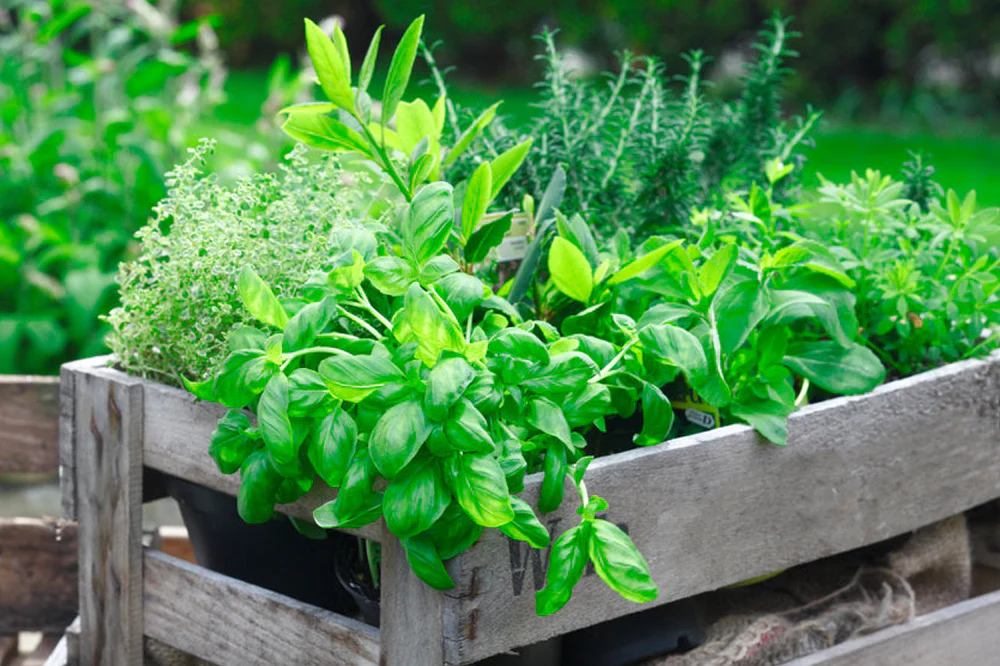
Rosemary is a classic herb known for its pine-like fragrance, needle-shaped leaves, and versatility in cooking. It’s one of the easiest herbs to grow, making it ideal for busy gardeners.
Why It’s Low-Care:
- Rosemary is drought-tolerant and thrives in dry soil conditions.
- It doesn’t require frequent watering – once established, occasional deep watering is enough.
- It is resistant to most pests and diseases.
Growing Tips:
- Light: Rosemary loves sunshine. Place it in a spot that gets at least 6–8 hours of direct sunlight daily.
- Soil: Well-drained sandy or loamy soil is best. Avoid waterlogged soil to prevent root rot.
- Watering: Water sparingly – once every 7–10 days is usually sufficient.
- Maintenance: Prune lightly a few times a year to encourage bushy growth and prevent legginess.
Uses:
Rosemary pairs beautifully with roasted vegetables, meats, and bread. It can also be used in infused oils, teas, and even in natural skincare remedies.
2. Thyme – The Hardy Ground-Cover Herb
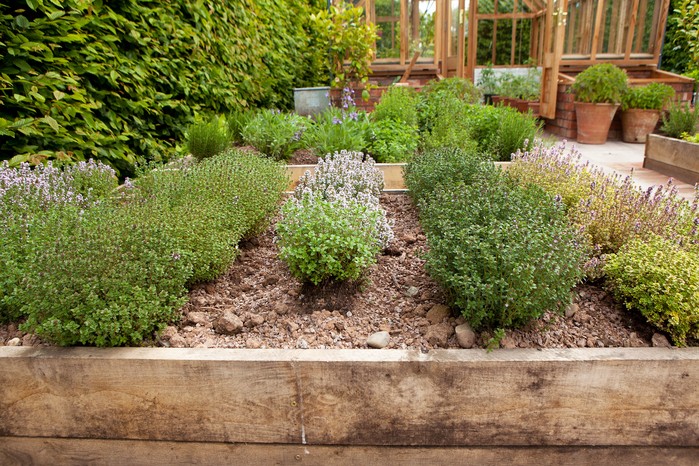
Thyme is another fantastic herb that requires minimal attention. This perennial herb grows in small, woody clumps and is well-loved for its tiny fragrant leaves and delicate flowers.
Why It’s Low-Care:
- Thyme thrives in poor soil conditions, so it doesn’t require heavy feeding.
- Once rooted, it is highly drought-tolerant and requires little watering.
- Thyme is hardy and resists most common plant diseases.
Growing Tips:
- Light: Full sun is ideal for thyme. It needs at least 6 hours of light daily.
- Soil: Well-drained sandy or rocky soil works well. It can even grow between garden stones.
- Watering: Water only when the soil feels completely dry.
- Maintenance: Minimal pruning is needed. Trim occasionally to harvest leaves and encourage new growth.
Uses:
Thyme is widely used in Mediterranean cuisine, soups, stews, and marinades. Its leaves can be dried for year-round use, and thyme tea is known for its soothing qualities.
3. Mint – The Fast-Growing Refreshing Herb
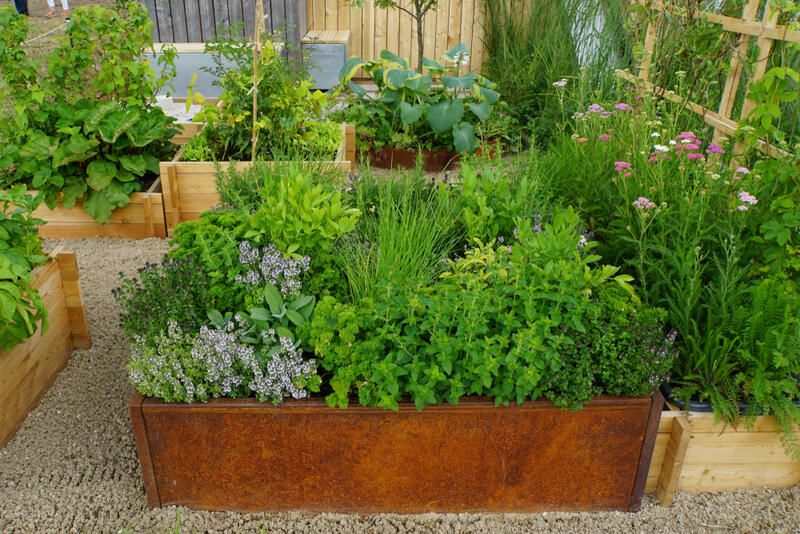
Mint is a vigorous, fast-spreading herb that grows almost effortlessly. It produces refreshing leaves perfect for teas, desserts, and savory dishes. For busy people, mint is a blessing—it practically grows itself!
Why It’s Low-Care:
- Mint thrives in a variety of conditions, including partial shade.
- It grows quickly and spreads easily with minimal care.
- Requires only occasional watering to stay lush.
Growing Tips:
- Light: Prefers partial shade but can also tolerate full sun.
- Soil: Rich, moist, and well-draining soil is ideal.
- Watering: Water when the soil surface dries out, but don’t let it become soggy.
- Maintenance: Mint spreads aggressively, so it’s best grown in containers to control its growth.
Uses:
Mint is popular in teas, mojitos, salads, and desserts. It also freshens breath, relieves digestive discomfort, and makes a natural insect repellent.
4. Oregano – The Flavorsome Mediterranean Herb
Oregano is another robust herb that practically thrives on neglect. Known as the “pizza herb,” oregano is a must-have for anyone who loves Mediterranean cooking.
Why It’s Low-Care:
- Oregano is drought-resistant and doesn’t need frequent watering.
- Once established, it requires very little maintenance.
- It is resistant to most garden pests.
Growing Tips:
- Light: Oregano thrives in full sunlight. Ensure it gets at least 6 hours daily.
- Soil: Sandy, well-draining soil is best.
- Watering: Water deeply but infrequently. Let the soil dry out before watering again.
- Maintenance: Trim oregano regularly to prevent it from becoming woody and to encourage new leaf growth.
Uses:
Oregano is perfect for Italian dishes, grilled meats, sauces, and soups. Its leaves can be dried for long-term storage, maintaining their strong flavor.
5. Chives – The Effortless Onion-Like Herb
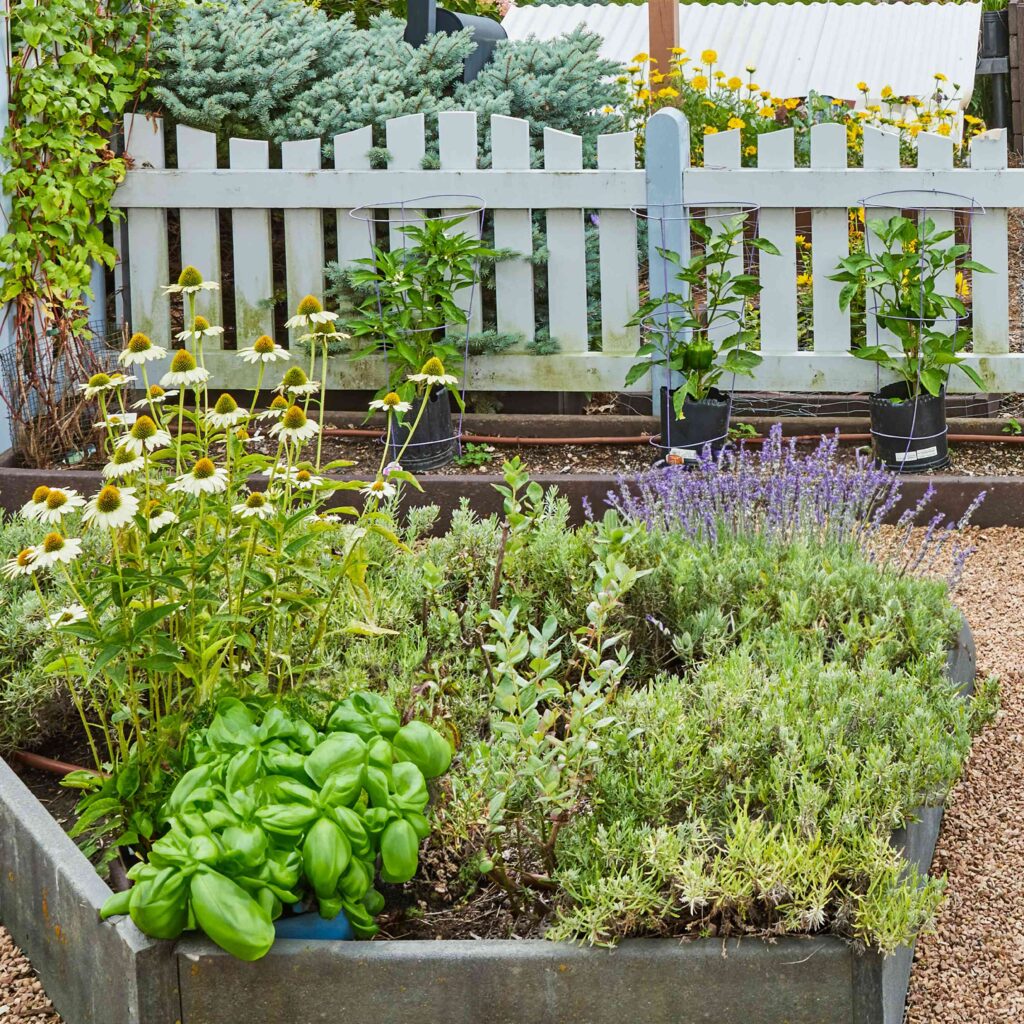
Chives are a hardy perennial herb that add a mild onion flavor to dishes. They’re perfect for busy gardeners since they regrow quickly after cutting and need minimal attention.
Why It’s Low-Care:
- Chives are resilient and can thrive in less-than-ideal soil.
- They don’t require frequent watering or fertilization.
- Pest-resistant and hardy, chives grow well both indoors and outdoors.
Growing Tips:
- Light: Chives love sunlight, but they also tolerate partial shade.
- Soil: Grow in fertile, well-drained soil enriched with compost.
- Watering: Water moderately when the topsoil dries out.
- Maintenance: Snip leaves regularly to encourage fresh growth. In colder regions, chives die back in winter but return in spring.
Uses:
Chives are commonly used as garnish for soups, salads, omelets, and baked potatoes. Their flowers are edible too and make a colorful addition to salads.
General Care Tips for Busy Gardeners
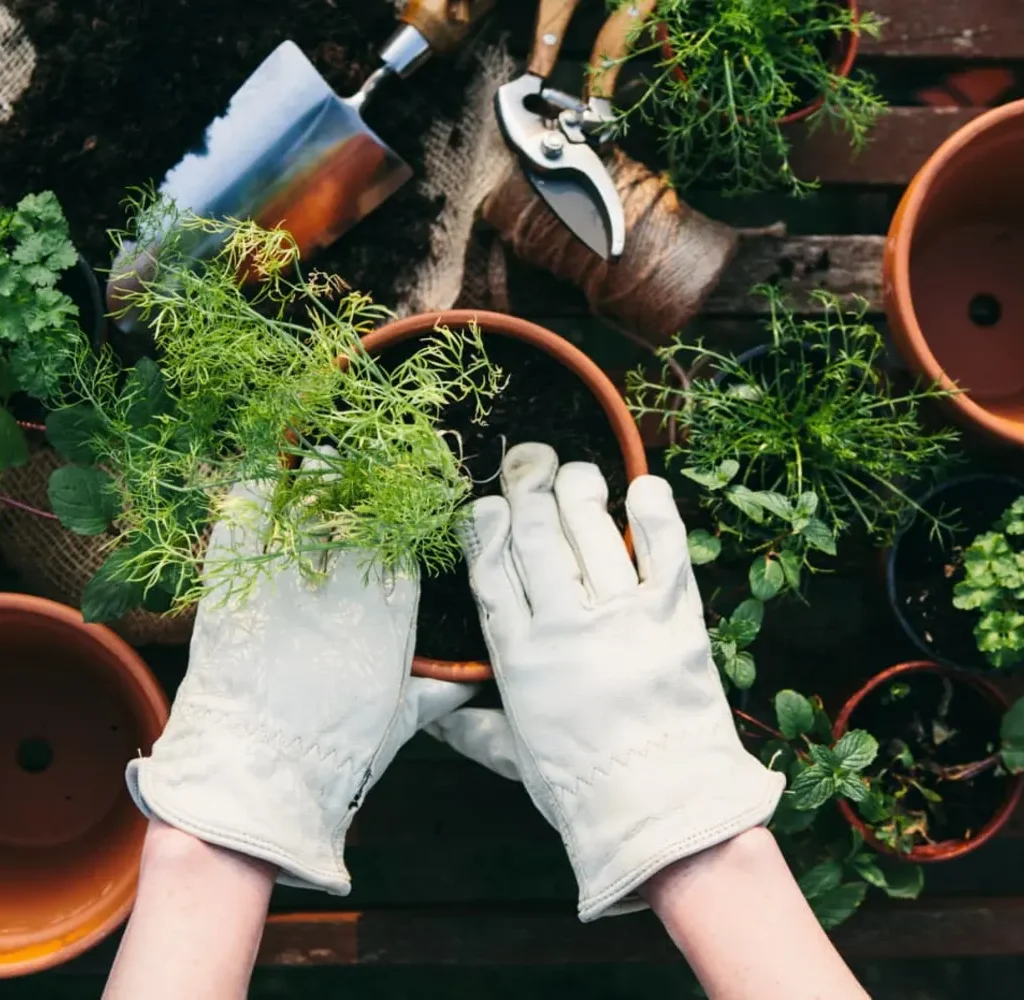
Even though these herbs are low-maintenance, a little extra care can go a long way. Here are a few simple practices to make your herb garden thrive:
- Use Containers: Growing herbs in pots or containers saves space, prevents aggressive spread (like with mint), and makes them easy to move around.
- Mulching: Applying a layer of mulch helps retain soil moisture and reduces the need for frequent watering.
- Harvest Regularly: Picking leaves often encourages new growth and keeps herbs healthy.
- Avoid Overwatering: Most herbs dislike soggy soil. Let the soil dry out before watering again.
- Choose the Right Spot: A sunny windowsill, balcony, or outdoor garden bed can all work well. Ensure proper light conditions for each herb.
Conclusion
Having a beautiful, functional herb garden doesn’t have to demand hours of care and attention. With plants like rosemary, thyme, mint, oregano, and chives, even the busiest person can enjoy fresh, aromatic herbs at their fingertips. These herbs are forgiving, resilient, and packed with flavor, making them a perfect choice for beginners and time-strapped gardeners alike.
By selecting these low-care herbs, you’ll not only save time but also bring nature into your home and enhance your cooking with fresh, organic flavors. Whether you grow them indoors in containers or outdoors in a small patch, these herbs will reward you with minimal effort and maximum benefits.
So, if you’re looking to green up your space without adding stress to your schedule, start with these five low-maintenance herbs—your taste buds and your garden will thank you!
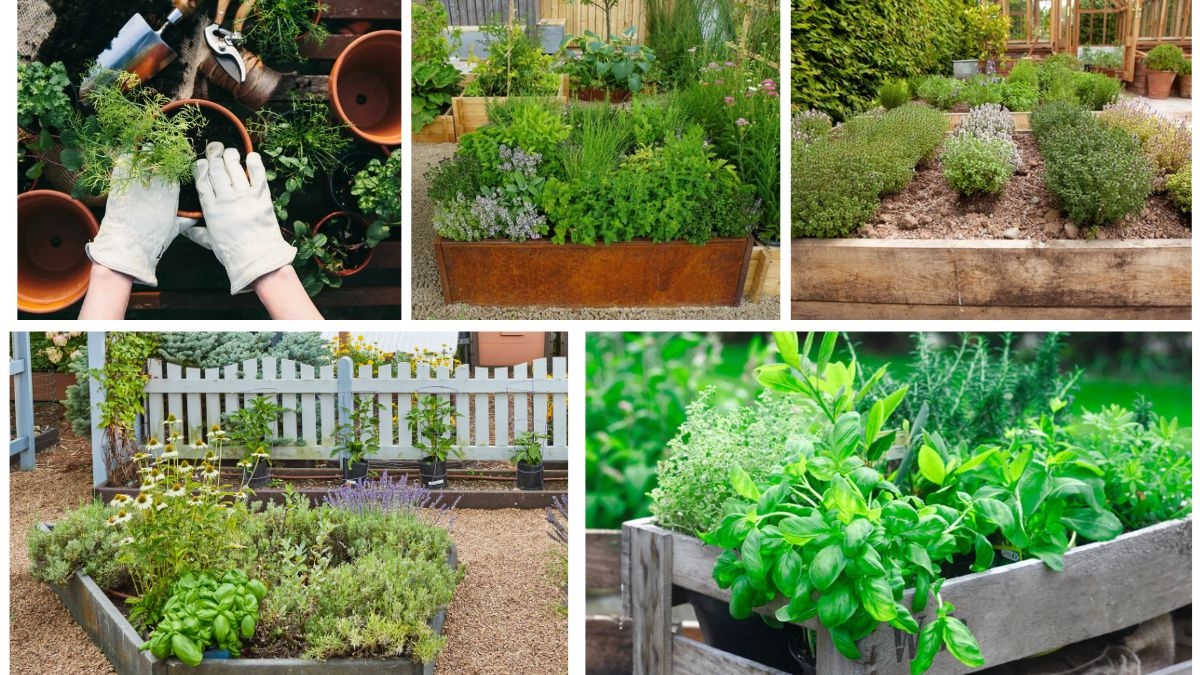





Leave A Comment